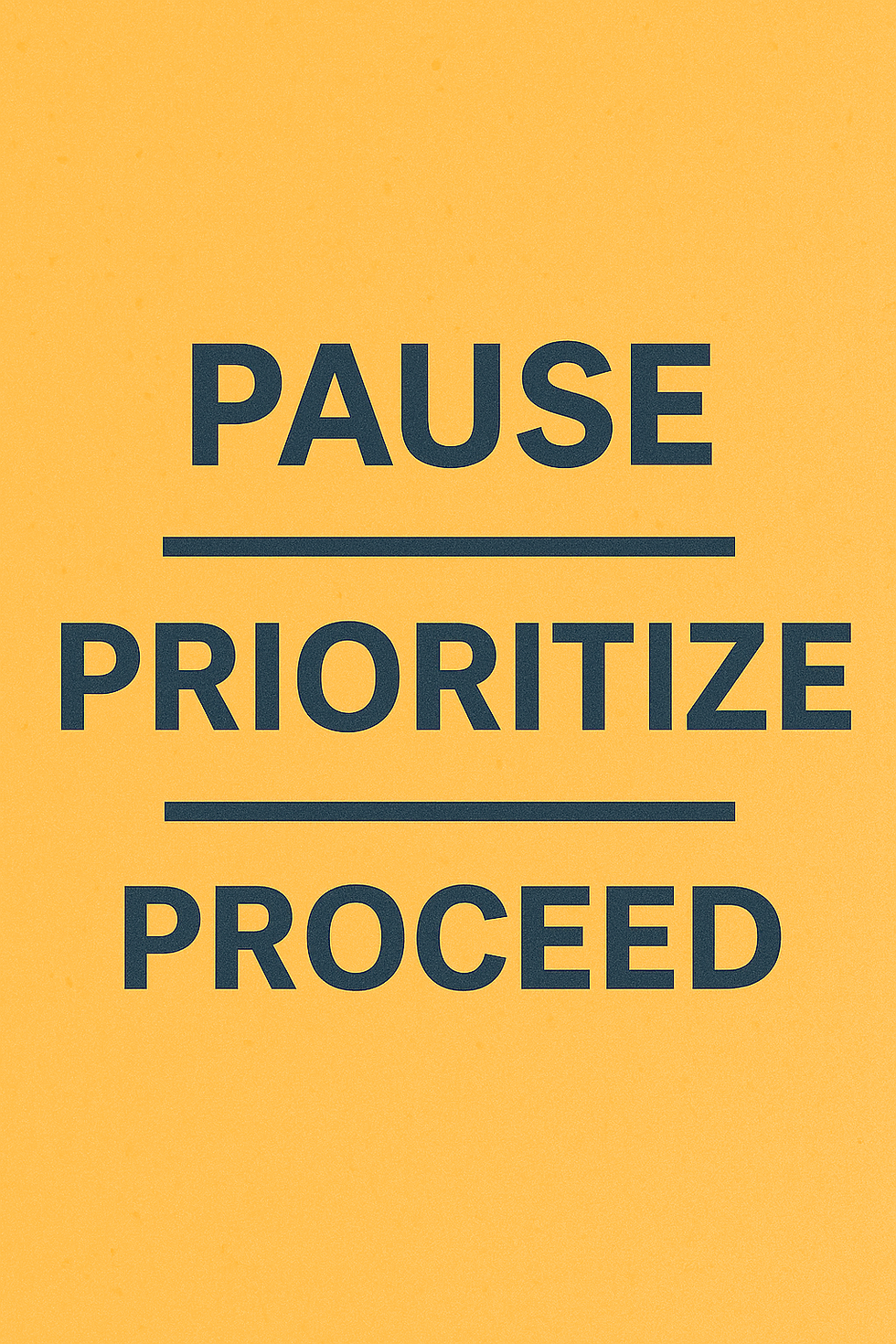Worry Is Not a Plan: Financial Clarity in Uncertain Times
- Sara V. Solano, CRPC®, BFA™

- Jul 2, 2025
- 3 min read
Updated: Aug 23, 2025
By Sara V. Solano, CRPC®, BFA™
LodeStar Advisory Group LLC

The world feels uncertain—and for good reason. Markets have been volatile. Headlines shift daily between optimism and alarm. Economic data is often contradictory. Whether it’s concerns about inflation, global instability, or personal financial stress, there are plenty of reasons to feel uneasy.
But in this environment, one emotional risk often goes unnoticed: worry disguised as preparation.
At first glance, worry seems productive. It feels like we’re getting ahead of things, being responsible, anticipating problems. But often, we’re simply exhausting ourselves solving problems that may never come. We call this anticipatory stress, and it can take a real toll—not just emotionally, but financially.
Worry Isn’t Risk Management—It’s a Reaction
One of the core principles in Behavioral Financial Advice is recognizing that humans crave certainty—and our brains often overreact in its absence. When economic headlines are negative or financial plans feel threatened, our natural tendency is to act: sell, pause, switch, or retreat.
But reacting emotionally often leads to misaligned financial decisions:
Selling investments during downturns and missing the rebound
Suspending retirement contributions due to short-term fear
Making abrupt changes to long-term plans based on daily headlines
These decisions feel protective—but over time, they quietly erode the very plans they were meant to protect.
From “What If?” to “Even If”
Instead of solving for every possible crisis, we encourage a mindset shift: from “What if this happens?” to “Even if it does, am I prepared?”
Using Behavioral Finance techniques, individuals and families can build emotional resilience by asking:
What do I actually control right now?
What values should guide my financial behavior?
If my long-term goals haven’t changed, should my strategy?
Focusing on these questions reduces anxiety and supports more grounded decision making.

A Framework for Uncertainty: Pause. Prioritize. Proceed.
In times of high stress, a simple decision-making framework can be incredibly grounding:
Pause
Take a step back from the emotional impulse. Let the moment settle.
Prioritize
Revisit your long-term goals. Consider whether recent events truly change your trajectory or just challenge your patience.
Proceed
Make the next right decision—not all of them at once. Stay engaged, but don’t overreact.
Market Context: A Climate of Mixed SignalsToday’s economic landscape sends a mix of signals—and that alone can increase uncertainty. Inflation appears to be stabilizing in some areas while remaining elevated in others. Interest rates have risen sharply in recent years, leading to both challenges and opportunities for savers, borrowers, and investors alike.
Meanwhile, volatility continues to resurface across global markets, driven by geopolitical tensions, shifting consumer behavior, and evolving central bank policy. News cycles move quickly, and investor sentiment often swings with them.
But while conditions change, the fundamentals of long-term financial planning remain steady. A solid strategy accounts for uncertainty—it doesn’t attempt to eliminate it.
The Cost of Worrying Twice
As we often say: Worrying twice doesn’t protect you from pain—it just makes you live it more than once.
The future is, and always has been, uncertain. But that doesn’t mean we need to carry the weight of every possible future today. Financial clarity comes not from eliminating risk, but from staying grounded in your goals, your values, and your plan.
Final Thought
Financial strength isn’t built on fear—it’s built on preparation, discipline, and perspective. Whether you’re feeling uncertain about markets, retirement, or day-to-day spending, the most important step is not a reaction. It’s a reflection.
Pause. Prioritize. Proceed.
You don’t need to predict the storm. You just need a plan strong enough to weather it.
_________________________________________________________________________________Sara V. Solano, CRPC®, BFA™ is a Wealth Advisor who specializes in providing behavioral financial advice.
Disclosure: LodeStar Advisory Group LLC is an independent Registered Investment Adviser (RIA) headquartered in Naples, Florida. The above commentary does not constitute individual investment advice. The strategies discussed are strictly for illustrative and educational purposes and should not be construed as a recommendation to purchase or sell, or an offer to sell or a solicitation of an offer to buy any security. This material represents an assessment of the market environment at a specific time and is not intended to be a forecast of future events or a guarantee of future results. This information should not be relied upon by the reader as research or investment advice regarding the funds or any security in particular.


Comments